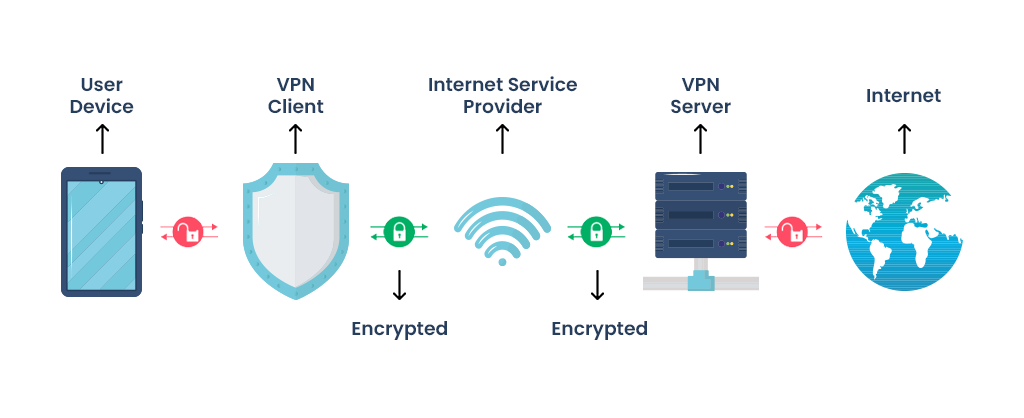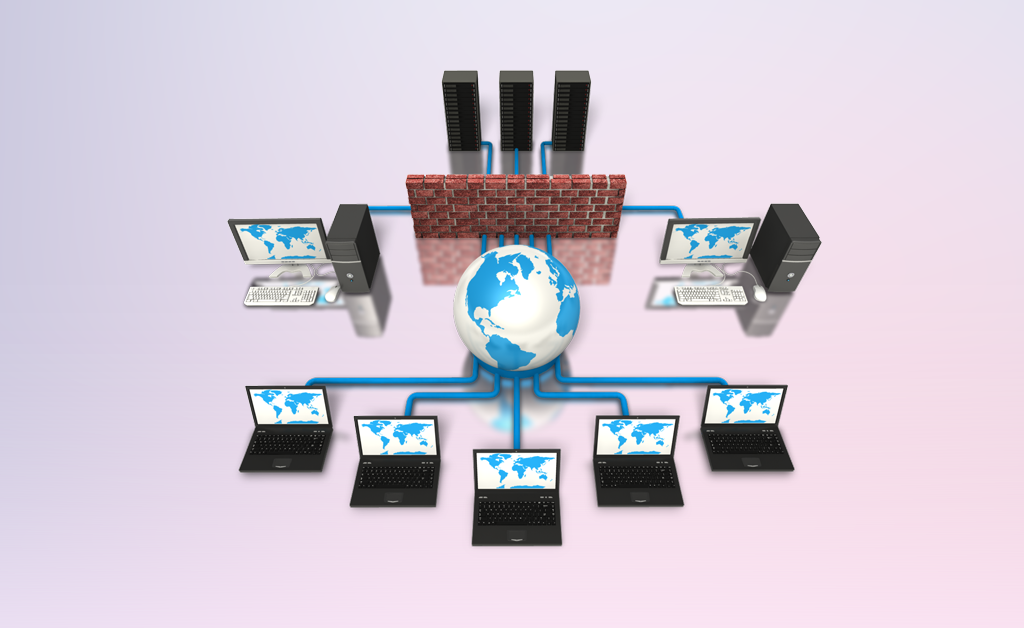Are VPNs Legal? Real Facts Explained!
Data security has never been more vulnerable in the era of digital invasion of privacy. Sophisticated services are updated and modified to provide optimal online safety and, most importantly, security. But what exactly does “safe” imply these days, and does it break the law?
Virtual Private Networks (VPNs) are popular services that protect your personal information on your computer from hackers, traffickers, and even network administrators.
Are VPNs legal?
The quick answer is Yes.
VPNs - originally were designed to provide a secure network for large corporations and organizations. However, VPNs can also get utilized for illicit or inappropriate activity. Some countries outright prohibit them for this reason. Here, we delve deeper into this topic and see where VPNs are illegal and where they are not.
Where VPNs are Illegal?
Nations ruled by authoritarian governments that don’t consider civil rights and/or their citizen’s ability to communicate and think freely as essential tend to be the ones that ban or restrict VPN use. Citizens of such regimes may attempt to use VPNs to circumvent stringent government monitoring of online activities or banned websites. In turn, governments block or restrict their use. The list below takes us through countries where VPNs are illegal to use and are not:
Read more on How to access blocked websites
Countries where VPN is completely blocked -
- Belarus
- North Korea
- Iraq
- Turkmenistan
These countries have specific laws stating that VPNs are prohibited and that anyone discovered using them will get prosecuted.
Countries where VPN is Heavily restricted -
Even though VPNs get extensively utilized in countries such as:
- China
- Iran
- United Arab Emirates
the governments of these countries take steps to prevent residents from using them, such as deleting VPN apps from the China App Store. Similarly, Egypt, like Turkey, limits access to VPN websites to discourage its residents from using them, even though they are not technically prohibited.
Countries where VPN is legal, but must be registered -
VPN use is technically permitted in countries such as:
- Oman
- Russia
but it must get approval from the government. Companies in places like Russia are frequently required to hand over private data and logs at the request of the authorities, and many consumer VPNs have shifted their servers out of Russia for fear of being confiscated.
How a VPN Works : A Quick Overview

A VPN essentially establishes a secure link between you and the internet. When you use a VPN to access the internet, your data traffic gets routed through an encrypted virtual bridge.
This has several benefits of using a VPN:
- You’ll be more anonymous online because your true IP address and location get concealed.
- You’ll be safer online: the encrypted tunnel keeps hackers and cybercriminals at bay, and your device will be less prone to attacks.
- You will have more internet freedom: using different IP addresses, you can access websites and online services that would otherwise be prohibited.
Rights concerning VPNs:
Your rights differ based on various circumstances, including the VPN’s terms of service, the region in which you use the VPN, and the terms and conditions of any services you access while using a VPN.
Most VPNs will clarify that unlawful actions are not permitted and that users must accept full responsibility for illicit behavior. You will also typically see a provision detailing how a specific provider handles legal requests connected to suspected fraudulent, abusive, or criminal activity and indications concerning the VPN provider’s interaction with law enforcement authorities.
Legal Applications:
While some countries prohibit the use, others do not, as there are numerous acceptable reasons to utilize virtual private networks.
Here are some of the most common reasons why people use VPNs in any country:
- Wi-Fi in public places or an unsecured network
If you are concerned about your online privacy (and security), you should avoid utilizing an unprotected or public Wi-Fi network without a VPN. When you surf on a public Wi-Fi network, you frequently expose yourself and your data to hackers, malware, and other scams.
- For government or professional use
It is critical to utilize a VPN when sensitive information must remain secure for security, monetary gain, or professional gain, ensuring that information that could jeopardize an institution’s performance remains secret and out of the hands of competitors or opponents.
- To bypass regional limitations from any country
If you want to access geo-restricted content, such as Hulu, from your present location, you can use a VPN to connect to a server in a permitted country. You may also unblock media libraries by changing your Netflix region with a VPN. While legality is not an issue in most countries, many providers, including Hulu and Netflix, do not allow you to overcome these restrictions.
- Anonymity and online privacy
Online privacy and anonymity are two of the most important reasons to utilize a virtual private network. These measures are especially crucial when a lack of privacy and anonymity may genuinely endanger someone’s life and safety, as may be the case in a very restrictive society.
- Security when working remotely
Using a VPN lets everyone who works remotely safely log into the shared workplace network while also protecting projects and assets.
- Gaming: Access many servers to play on, purchase games before they get released in your location, and avoid unpleasant lag and ping difficulties.
- Unrestricted Cryptocurrency Trading
Unlock inaccessible cryptocurrency exchanges from any location by obtaining an IP address from a nation where they are available.
Illegal applications of a VPN:
While using a VPN is legal in most countries, VPN usage can become unlawful if you use it for illicit behavior, such as:
- Hacking into private networks
Breaking into networks or devices that do not have permission to access is prohibited.
- Torrenting
Sharing or downloading unlawful or copyrighted files is called Torrenting. If you get caught torrenting illegal or copyrighted files, there is a chance you may face penalties.
- Online Stalking
Using a VPN to stalk someone online is unlawful and may result in prosecution.
- Buying, selling, or downloading on the dark web -
The dark web is an under-the-radar portion of the internet where a considerable lot of unlawful activity, such as the purchase or sale of drugs, firearms, and other illicit materials or access to illegal pornography.
Is it permissible for organizations to use a VPN?
Yes, organizations can (and should!) lawfully utilize VPNs. There is one catch here: any business that operates within the list of nations that have banned VPNs will be unable to use them.

For instance, VPNs are frequently utilized in nations such as China despite the government’s aversion because entirely prohibiting them would be economic suicide, as many foreign enterprises would flee the country.
Business VPNs are handy for connecting to a corporation’s internal network and the public internet, making them the ideal tool for working remotely with employees who need to access company files and other confidential data on a regular basis.
Is it necessary to use a VPN with obfuscated servers?
Yes, it is recommended that you use VPNs with obfuscated servers if you live in a country where VPNs are illegal or restricted, such as China or Belarus. These countries impose limits or bans on the technology to identify and prevent traffic coming from or going through VPN servers.
Remember that while VPNs dissociate your IP address from your internet activity, your ISP or government could still see you’re using one if they wanted to, just not what you’re doing with it.
Is Using a VPN in Restricted Areas Safe?
In terms of security, most VPN companies protect their users by enforcing a strict no-logs policy, which means that neither your information nor your internet behavior gets tracked, and governments cannot acquire your data even if they declare that the VPN provider is required to report it. SPL VPN stands apart from the competition by providing users with a strictly no-log service.
However, most providers must comply with the authorities of the country where they have established their business.
As a result, if necessary, they may choose to turn over the logs to law enforcement organizations. Several VPN services operate in countries where compliance laws are either non-existent or extremely lax to combat this. They can then get away with not cooperating with regulatory agencies since no law makes it mandatory for them to do so.
In conclusion
Most nations permit VPN use, so one should be fine as long as nothing unlawful gets done using the VPN.
As you can see, the answer to the question of - are VPNs illegal is not simple.
To determine whether you are violating any terms of service for various streaming sites or regional websites you are attempting to access, read each site’s regulations and then decide whether you are willing to break the rules for the greater good or forego your VPN to adhere to the law.
Remember that whether or not to use a VPN is not the only decision you must make. When selecting a VPN, it is critical to consider the dependability of its privacy and security features to secure your safety when browsing the web, as well as in more heavily monitored nations.
At SPL VPN, we support net neutrality and feel that everyone can access the internet quickly with our one-click VPN feature. When providing content via the internet, your ISP should not impose any restrictions or partiality. It contributes to the internet remaining transparent and a level playing field for all.







